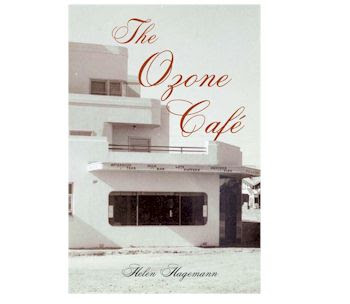The female voice is arbitrary. It has an opaque meaning, therefore, it functions as a concept. Not unlike any other concept that has been raised by male poets, such as Charles Olson's 'Projective Verse', where the reader is meant to feel the kinetic energy; to be 'propelled by the language of the poem to follow that track of energy down the page; to experience the process by which the poet's energy propelled him in the first place.'
For many women the stresses of writing poetry in their true female voice has led to the pressures of imposed silence. Publication still exists in patriarchy and the demands of patriarchy expect the quality of work to be like their male counterparts. They expect a male universality in the material which may exclude the female voice.
A woman goes to poetry diminished by decade upon decade of patriarchal dominance. She avoids writing in her own language, avoids much of her victimization, suppressed anger, love, desire, demands of children, chores, errands, fatigue, loss of contact with her own being, redolent experience of place/landscape/world, not forgetting rape, incest, domestic violence and pacifism.
In 2001 (a fairly current event), there was an objection made by poets, especially male, in relation to the International Poetry Summit - World Poetry Day. They objected to the choice of P.K. Page's poem Planet Earth being read at the summit of Mt. Everest. This attests to the adverse response to women's poetry, & the poem's apparent feminising of the state of the world.
As a great advocate of this subjectivism, Adrienne Rich wrote in When we Dead Awaken - 'to be a female human being trying to fulfill traditional functions in a traditional way is in direct conflict with the subversive function of the imagination.' She goes on to say that 'by traditional she means conservative. Women are often haunted by their womanly, energetic imagination. The choices are to rebel and resist but usually the voice obeys. It is ruled by the weight of an entirely dominant male society.'
This poetic concept aims to legitimize the female voice. For the time being, it is a concept only and one for contemplation. I once wrote that it should be a concept of undermining patriarchy, however, I have changed my thinking in this area. No, the female voice must rise, take flight, become the muse speaking for the mute!
For many women the stresses of writing poetry in their true female voice has led to the pressures of imposed silence. Publication still exists in patriarchy and the demands of patriarchy expect the quality of work to be like their male counterparts. They expect a male universality in the material which may exclude the female voice.
A woman goes to poetry diminished by decade upon decade of patriarchal dominance. She avoids writing in her own language, avoids much of her victimization, suppressed anger, love, desire, demands of children, chores, errands, fatigue, loss of contact with her own being, redolent experience of place/landscape/world, not forgetting rape, incest, domestic violence and pacifism.
In 2001 (a fairly current event), there was an objection made by poets, especially male, in relation to the International Poetry Summit - World Poetry Day. They objected to the choice of P.K. Page's poem Planet Earth being read at the summit of Mt. Everest. This attests to the adverse response to women's poetry, & the poem's apparent feminising of the state of the world.
As a great advocate of this subjectivism, Adrienne Rich wrote in When we Dead Awaken - 'to be a female human being trying to fulfill traditional functions in a traditional way is in direct conflict with the subversive function of the imagination.' She goes on to say that 'by traditional she means conservative. Women are often haunted by their womanly, energetic imagination. The choices are to rebel and resist but usually the voice obeys. It is ruled by the weight of an entirely dominant male society.'
The female voice is a way of speaking, it is expression, and female experience. Women experience the world differently to the other half of the population. The female voice lies dormant because it is diminished by patriarchal traditions.
However, a woman knows, wants, needs, and touches this world everyday, and, in this sense, she should be able to express this emotional and physical engagement through voice.
In relation to book publication, the female holds back, and in order for acceptance, (usually a male publishing field), she writes in a traditional way or along with the status quo. She loses herself within the confines of language, within the "phallocentricism" of a male dominated language.However, a woman knows, wants, needs, and touches this world everyday, and, in this sense, she should be able to express this emotional and physical engagement through voice.
This poetic concept aims to legitimize the female voice. For the time being, it is a concept only and one for contemplation. I once wrote that it should be a concept of undermining patriarchy, however, I have changed my thinking in this area. No, the female voice must rise, take flight, become the muse speaking for the mute!
















0 comments:
Post a Comment